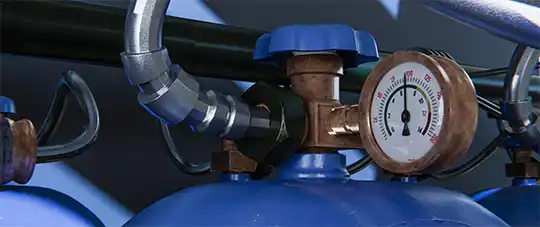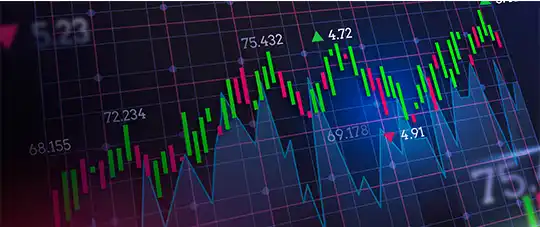Why CNG?
Compressed Natural Gas (CNG) is used in traditional petrol and internal combustion engine vehicles that have been modified, or in vehicles specifically manufactured for CNG use. It can be used in place of petrol, diesel fuel, and liquefied petroleum gas (LPG).
Compressed natural gas (CNG) is a fuel gas mainly composed of methane compressed to less than 1% of the volume it occupies at standard atmospheric pressure. It is the petroleum in the form of a mixture of hydrocarbon gases and vapors, consisting principally of methane (CH4) which has been compressed for use as a vehicular fuel.
CNG combustion produces fewer undesirable gases than the aforementioned fuels. In comparison to other fuels, natural gas poses less of a threat in the event of a spill, because it is lighter than air and disperses quickly when released.
CNG costs about 50% less than petrol, and emits up to 90% fewer emissions than petrol.
What is the current market demand?
Recently there have been a growing number of natural gas vehicles in Tanzania. This is currently estimated to be more than 3000. Most of the vehicles are been converted to use CNG. The only authorized dealer converting the vehicles in the country according to current data is Dar es Salaam Institute of Technology which can do the retrofitting, which involves installing a CNG cylinder, plumbing, CNG injection system, and electronics.
Scania Tanzania Ltd also introduced a truck that uses CNG this October, 2023.
Current established filling stations
There only two current active filling stations offering CNG services located in Dar es Salaam. This has resulted into congestion in CNG users.
According to TPDC they have approved 20 applications to construct CNG filling stations. By the end of 2023 at least 7 will start operating.
Requirements to establish a CNG filling station
The regulator responsible with CNG activities in Tanzania is the Energy and Water Utilities Regulatory Authority (EWURA) and Tanzania Development Petroleum Corporation (TDPC).
In order to construct the CNG system (CNG refueling stations equipment and all components used in the refueling facility) you are required to obtain the construction approval from EWURA.
The construction approval is obtained by filing the prescribed application form accompanied by the relevant documents. Some the notable documents which might be required include:
- A project feasibility study;
- Detailed technical and financial expertise and resources available for carrying out the relevant activities;
- Detailed estimated cost of the project;
- Project documents i.e. Drawings, plans and design specifications;
- Copy of environmental clearance certificate;
- Local content plan;
- Proof of site ownership including building permit.
If construction has been approved and you intend to begin construction then 30 days before commencement you should notify EWURA.
With regard to CNG activities EWURA issues three types of licenses, CNG supply license, CNG refueling license, and CNG own use license.
If you undertake to engage into CNG activities then you need to also obtain a license from EWURA.
The application for a license is done by filing the prescribed application form accompanied by relevant documents. Some the notable documents which might be required includes;
- Memarts, certificate of incorporation
- TIN certificate
- Business license
- business plan
- proof of financial arrangements
- descriptions of the premises to which the application relates
- proof of consent of the aggregator to supply gas
- a local content plan
- integrity pledge form in prescribed form
- description of the CHGV or type of CNG system which is to be installed
- qualifications of the technical members of staff employed in inspection, installation, maintenances and repair of the CNGV or CNG system
- Evidence of the applicant’s capability to obtain, operate and maintain CNG equipment to ensure safe and efficient operations
- Decommissioning plan
Importantly also you need to have the gas sales distribution agreement with one of the supplies. Notably this can be TPDC or Pan African energies.
The license is valid for a period of 5 years once issued and it is renewable. But the licensee is required to begin conducting the licensed activity within six months after insurance otherwise the license will have no effect.
The issued license is transferable but it must first be approved by EWURA.
They are other government regulatory agencies that might be involved in the process of engaging in CNG activities which you might consider for instance Tanzania Telecommunication Company Limited (TTCL), Tanzania National Roads Agency (TanRoads) or Tanzania Rural and Urban Roads Agency (TARURA) as the case may be, and National Environment Management Council(NEMC).
As of 2010, recoverable natural gas reserves were estimated at 57.54 Trillion cubic feet (tcf) – comprising 10.14 (tcf) onshore and 47.13 (tcf) deep offshore.
Currently Natural gas is produced in three sources in Tanzania, Songo Songo, Mnanzi bay and Kiwani North. The on-going negotiations about the Liquefied Natural Gas (LNG) Project once implemented will further boast the production of Natural Gas.
Disclaimer




